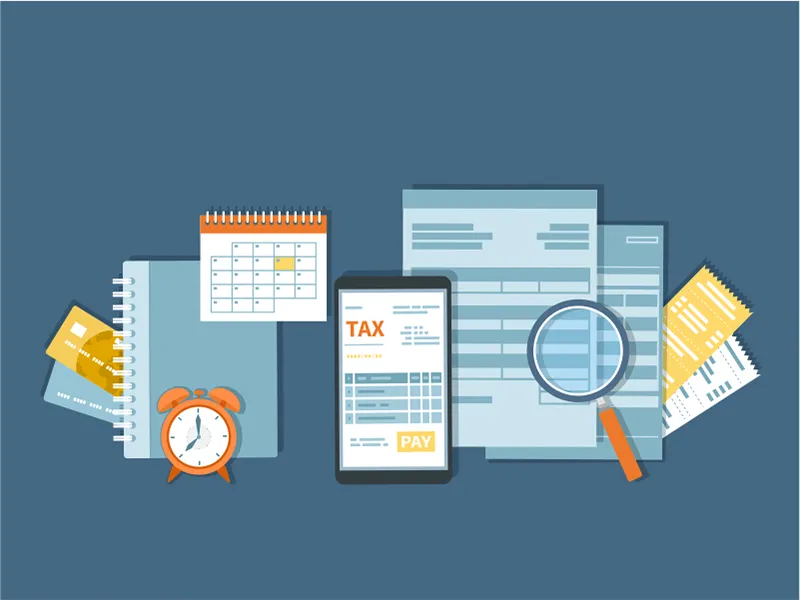
India is the second-largest in the world in terms of population. However, the irony is that only around 3% of the population actually pays tax. The government in every budget brings various amendments to the tax laws to accommodate the changing needs of the country and benefit the taxpayers. This makes our tax laws one of the most complex in the world and the majority of the population simply evades paying tax citing its complexity or finding various loopholes to avoid any tax liability. The Income Tax Act, of 1961 has classified the income earned by taxpayers into various categories and has also notified various ITRs specific to the type of income.
Given below is a brief snapshot of the various income heads under the Income Tax Act and the relevant ITRs.
What is ready reckoner and why is it helpful?
We all have heard of ready reckoners for income tax but what does it exactly mean? A ready reckoner is a brief booklet that has important details of the Income Tax Act in a snapshot. It can include the tax slab rates, relevant ITRs, and the due dates to file them among other details.
The tax laws are constantly changing and a very good example of the same is the new tax regime that was introduced in FY 20-21. The latest ready reckoner in such cases will help the taxpayers, especially the first-time taxpayers, to navigate the complex tax laws without wasting any time and worrying about missing any due dates.
What is an ITR and when to file it?
An ITR refers to the Income Tax Return that has to be filed by every taxpayer within the relevant due dates. Filing of ITR is also mandatory for receiving refunds, setting off and carrying forward losses, assessees who have assets or income from sources outside India, etc.
Taxpayers can file the relevant ITR by logging into the income tax postal using their valid login credentials. There are also other customer awareness websites that offer free services for income tax return filing or paid services for the same.
The due dates for filing the ITRs are mentioned hereunder.
| ITR | Due dates |
| ITR (taxpayers not requiring a tax audit) | July 31 |
| TAR (Tax Audit Report) | September 30 |
| ITR and TAR (taxpayers requiring a tax audit) | October 31 |
| Revised return or Belated return | December 31 |
Income Tax changes in Budget 2023 – watch YouTube video for details
Which ITR is applicable for different incomes?
There are multiple ITRs available under the Income Tax Act, 1961, and the details of the same are tabled below.
| ITR | Who can file this ITR? | Who is not allowed to file this ITR? |
| ITR 1 (also known as Sahaj) | Ordinary Residents with Gross Total Income up to Rs.50,00,000.The income sources included under this ITR areIncome from salariesIncome from House PropertyIncome from other sourcesAgricultural Income up to Rs. 5,000 | Ordinary resident having income more than Rs. 50,00,000NRIResident but not ordinary residentA person having agricultural income more than Rs. 5,000A person who is a director of a companyA person who has investments in unlisted equity sharesA person having assets outside IndiaA person having brought forward losses or have losses that need to be carried forward under the head ‘Income from house property’A person subject to provisions of section 194N |
| ITR 2 | Ordinary Residents having Gross Total Income more than Rs. 50,00,000HUFNRIResidents but not Ordinary ResidentsDirector in a companyA person having investments in unlisted equity sharesA person having income from salaries, more than one house property, capital gains, and income from other sources | A person or HUF having income from business or profession |
| ITR 3 | A person of HUF haviung income from business or professionA person who is a partner in a firm | Individuals and HUF who are not eligible to file ITR 1, ITR 2, ITR 4 |
| ITR 4 (also known as Sugam) | Resident Individuals, HUF, Firm (other than LLP), having gross total income of up to Rs. 50,00,000A person having business income or income from profession which is computed on a presumptive basis. | A person having business income or income from profession which is not computed on a presumptive basis.Restrictions similar to ITR 1 |
| ITR 5 | A person other than an individual or HUF | An individual or HUFA person required to file ITR 7 |
| ITR 6 | Companies other than those required to file ITR 7 | Companies required to fickle ITR 7 |
| ITR 7 | A person or company who are required to furnish return under section 139(4A), section 139(4B), section 139(4C) and section 139(4D) | Any other category of taxpayers |
Conclusion
Filing of ITR is mandatory as per the Income Tax Act, 1961. The Department also encourages persons having gross total income up to the exemption limit as per the respective tax slabs. This will bring more taxpayers into the taxation system. Apart from this, the provisions of the Act also levy penalties for non-filing or delay in filing of the mandatory ITRs. This penalty can be in terms of a percentage of the tax liability or jail term or both depending on the gravity of the offense.
FAQs
Individual taxpayers having a gross total income of less than Rs. 50,00,000 are required to file ITR 1
A partner of a firm needs to file ITR 3 as per the Income Tax Act.
The due date for filing ITR for individual taxpayers is July 31 of the following financial year.
The taxpayers eligible to file ITR 7 are,
-Taxpayers who are required to furnish a return under section 139(4A) – Income from property held under a trust (wholly or in part) for a charitable or religious purpose
-Taxpayers who are required to furnish a return under section 139(4B) – Chief Executive Officer of a Political Party
-Taxpayers who are required to furnish a return under section 139(4C) – Entities like Research Organizations, News Agency, etc. that are mentioned under section 10
-Taxpayers who are required to furnish a return under section 139(4D) – University, college, or others.


























